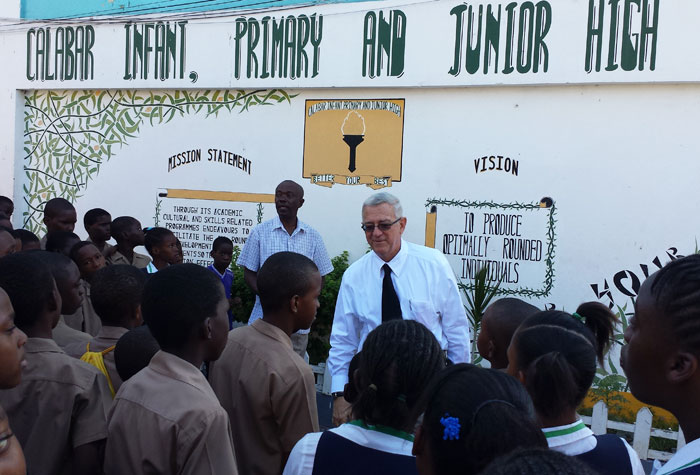Changes in GSAT 2015
By: , March 20, 2014The Key Point:
The Facts
- Rev. Thwaites argued that instead of memorizing things, “they are going to think about things and make a judgement between choices".
- Rev. Thwaites said the Ministry wants to ensure that children are prepared at the primary level to enter the secondary institutions.
The Full Story
Minister of Education, Hon. Rev. Ronald Thwaites, says that beginning in 2015, the Grade Six Achievement Test (GSAT) will undergo structural changes, where students will do more critical thinking, rather than memorizing texts.
“This is the last year GSAT is going to be like it is now. The change is not going to be dramatic, but next year the Science and the Social Studies papers are going to have less questions, and the body of information that your children will have to cover is going to be less,” the Minister said, while addressing members of the Mona Heights Parent Teacher Association, at the school, in St. Andrew, on March 19.
Explaining that the change is about helping the children, Rev. Thwaites argued that instead of memorizing things, “they are going to think about things and make a judgement between choices, rather than simply memorizing how many lakes are in the Caribbean.”
“Memory is the lowest form of intelligence; judgement and critical choices are higher order skills. What we are doing is trying to build up their competencies, and their skills of natural intelligence that you the teachers are so able to deal with. The exam is going to change bit by bit until about 2017, when it has a different format and different function,” he pointed out.
Rev. Thwaites said the Ministry wants to ensure that children are prepared at the primary level to enter the secondary institutions.
Meanwhile, the Minister emphasized that parents have a critical role to play by maintaining close contacts with their teachers, as when the home reinforces discipline and parents monitor their children’s books, the children will always have the right foundation for secondary education.
“What we want to do in primary school is to make sure that the basic competencies for high school learning is ready for everybody. Too many of our children are going into Grade 7, and are not ready for the curriculum in high schools, because the foundations are not there,” the Minister said.




